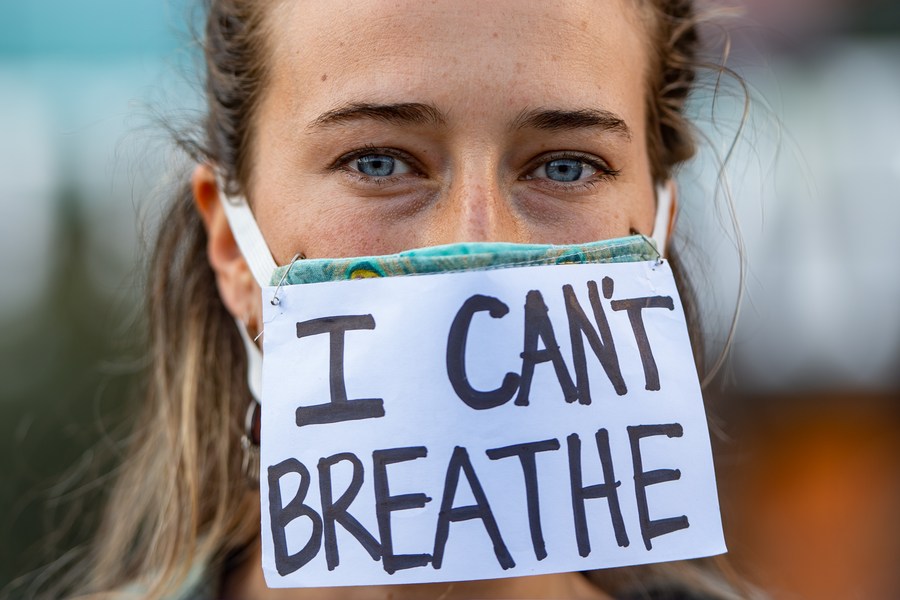China calls U.S. accusations "biggest lies of the century"

Protesters rally in front of the White House in Washington D.C., the United States, on June 24, 2020. (Xinhua/Liu Jie)
A Chinese foreign ministry spokesperson on Thursday said the United States is the "biggest human rights violator" in the world and its accusations about Xinjiang-related human rights issues are "the biggest lies of the century."
The comments were made to refute remarks made by U.S. Secretary of State Mike Pompeo, who said on Wednesday that the U.S. is going to impose visa restrictions on certain employees of Chinese tech firms that provide material support to regimes engaging in human rights violations and abuses globally. He called China "the stain of the century" in the area of human rights.
"In fact, the United States is the biggest human rights violator in the world, though it refers to the issue of human rights constantly, and its accusations about Xinjiang-related human rights issues are the biggest lies of the century," spokesperson Hua Chunying told a daily press briefing when asked to make comments.
"The relevant U.S. officials should feel ashamed of themselves, and the U.S. media and people should feel sorry for having such officials full of lies."
It is up to the Chinese people, rather than U.S. politicians, to judge China's performance in human rights, Hua said.
The spokesperson said since the founding of the People's Republic of China more than 70 years ago, under the leadership of the Communist Party of China, Chinese people have scored remarkable achievements by seeking a development path suited to their own national conditions.
Hua said over the past four decades and more, China has experienced a 25-fold plus increase in its per capita income, lifted 850 million people out of poverty, and contributed more than 70 percent to the global poverty alleviation effort.
At the same time, Hua said China has become the second-largest economy in the world without resorting to wars, colonialism or slavery, the only one among all major countries to do so. For more than a decade in a row, China has contributed more than 30 percent to global GDP growth.
"These are the biggest human rights projects, the best human rights practices, and the biggest contributions to the world human rights endeavor," Hua said, adding these achievements are there for all to see as long as it is viewed without bias.
Pertaining to the human rights situation in the United States, Hua said the U.S. uprooted and killed Indians in the Westward Movement for nearly a century after its founding, noting their population plunged from 5 million to 250,000, only one-twentieth of the original number.
Hua said during more than 240 years of American history since its founding, it has been war-free for only 16 years, adding the wars and military actions waged since 2001 in countries like Iraq, Libya, Syria, and Afghanistan caused more than 800,000 deaths, and tens of millions of civilians were displaced as a result.

A woman takes part in a protest against the killing of George Floyd in Istanbul, Turkey, June 5, 2020. (Photo by Yasin Akgul/Xinhua)
In the U.S., ethnic minorities including African Americans find themselves in a tough situation, Hua said. "George Floyd was not the only person suffocated to death because he 'couldn't breathe', as racial discrimination is pervasive in the United States."
In all Western countries, the U.S. suffers from the most serious polarization between the rich and poor, Hua said, adding the bottom 50 percent saw essentially zero net gains in wealth from 1989 to 2018, and the wealth gap has hit a 50-year high.
"I wonder how Pompeo, in the face of these hard facts, has the confidence to talk to China about human rights," said the spokesperson.
"I'd rather suggest he first asks George Floyd and other ethnic minorities about how they see human rights conditions in the United States, and ask those innocent lives tragically lost in Iraq, Libya, and other countries about how they see the U.S. performance on human rights," Hua added.
Editor: John Li